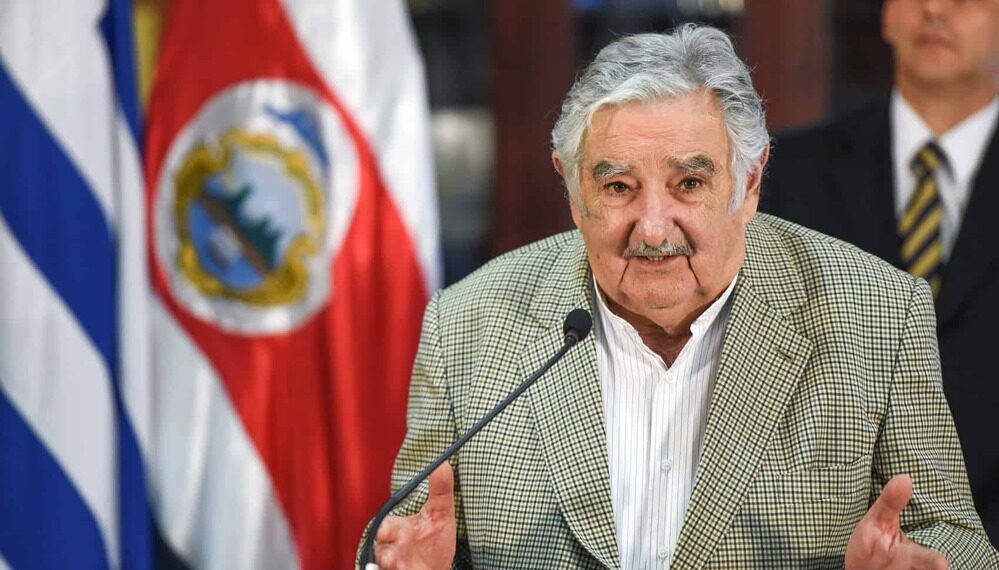Regardless of your political persuasion, religious views, or general preferences with regard to same-sex marriage, drugs or any other contentious issue, José Mujica is simply impossible not to like. The Uruguayan President must surely be the template for political leaders globally. The Perfect Politician.
Note his attire and general demeanour when he’s at an official engagement, meeting dignitaries or whatever it might be. Yes, he’ll concede to wearing a suit on special occasions, but forget the tie, and forget the ‘power stance’. Here’s a man who is totally comfortable with his place in the world and if he feels comfortable slouching, slouch he will. He doesn’t need any crutches to support his presidential image, unlike most politicians who have teams of advisors and spin doctors working around the clock on the matter.
Mujica lets his actions speak for him.
How about this for action. Next month Uruguay will pass into law, not only the legalization of marijuana, but the active participation of the government in the production, sale, taxation and regulation of the drug. It’s a move that is directly targeting the black market economy and crime associated with the illegal drug trade and the world is watching the impact it has.
In typical Mujica style he says of drugs “Every addiction is a plague, except for love.” If a person drinks two whiskies a day then they are going to be okay, but if they drink the whole bottle then they are going to have a problem and they need to be treated. The logical parallel with cannabis is hard to deny.
As well as allowing individuals and businesses to grow the drug, the government will cultivate and harvest their own crops and sell the product through pharmacies and post offices. The amount sold to individuals will be capped and will only be sold to Uruguayan citizens who register. This will help the government track individuals who may need help with addiction and help to stop drug tourism, although it remains to be seen how effective these controls will be.
Given that the ‘war on drugs’ is not only failing to stop drug distribution across the globe, but channeling vast sums of money into cartels and criminals at all levels, this move by Uruguay could be the forerunner for similar schemes everywhere.
Since taking office in 2010, Mujica has also pushed through liberal abortion legislation and legalized gay marriage. In the staunchly Catholic Latin America this is no mean feat and two more feathers in Mujica’s common-bloody-sense, slightly askew hat.
President Mujica met with President Obama late last week and reaffirmed his commitment to take six detainees from Guantanamo Bay in what would be one of the largest release of Arab prisoners to a third party country. With more than 154 prisoners still at the facility, Human Rights organizations hope that more countries follow Uruguay’s lead.
Having spent almost 14 years in prison for his own revolutionary guerrilla activities, Mujica can look at Guantanamo from both sides of the fence. As it stands, these detainees are not facing terrorism charges and Mujica sees it very much from a humanitarian point of view. Some of the detainees have been at Guantanamo for 12 years.
The US Government has okayed the release but the departments of Defense and State want assurances from Uruguay that the prisoners will not become a security threat upon release. Mujica doesn’t mince his words, saying that the individuals will be treated as refugees and not subject to monitoring. “We are not the jailers of the United State government…” and, “We are offering solidarity on a question that we see as one of human rights.”
If more proof were needed that José Mujica is not from the same mould as most, he donates 90% of his $12,000 a month salary, lives on a humble, but much loved farm outside Montevideo, and intends to start an agriculture school there when he retires from politics next March.
He says he can’t believe in God, but “every day I believe a little bit more in nature. I learned this very simple lesson: life is beautiful so you have to live it with intensity and pursue happiness.”
The Economist magazine named Uruguay ‘Country of the Year’ in 2013. If Mujica’s ambitious reforms achieve half as much as we all hope, perhaps Time magazine should put a hold on it’s cover for 2014 Person of the Year.



